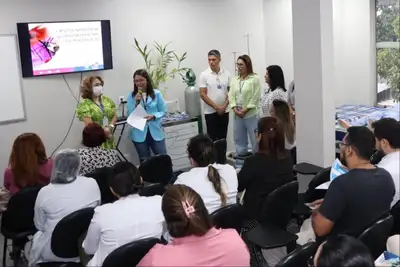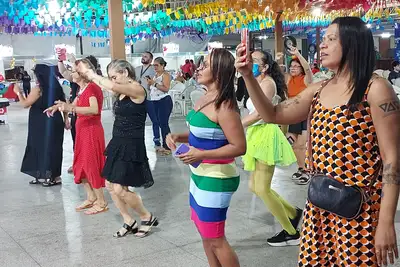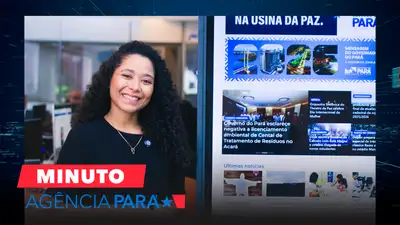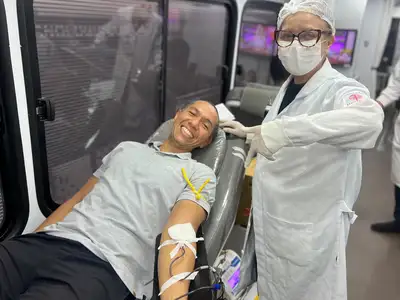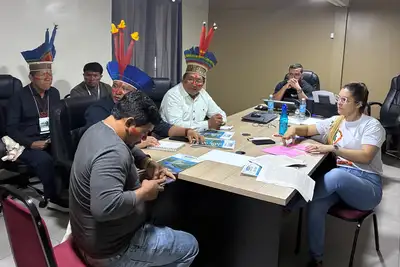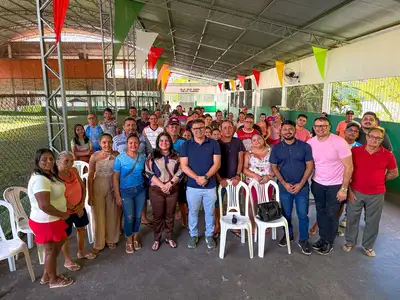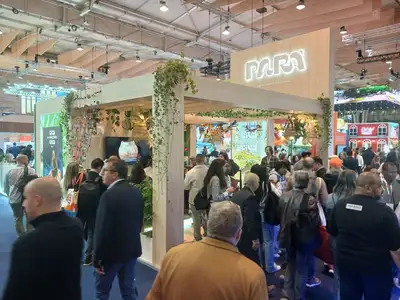Project ensures outdoor play for children hospitalized at the Metropolitan Hospital
Action brings together a multidisciplinary team and families in a moment of entertainment and strengthening of physical and mental health
On a morning that mixed the blue of the sky with the vibrant colors of kites, the Metropolitan Emergency and Urgency Hospital (HMUE), in Ananindeua (Metropolitan Region of Belém), held another activity of the "Summer HMUE" Project this Monday (28). Children hospitalized in the Burn Treatment Center (CTQ) of the unit temporarily left their beds for an entertainment action designed to ensure physical and mental well-being.
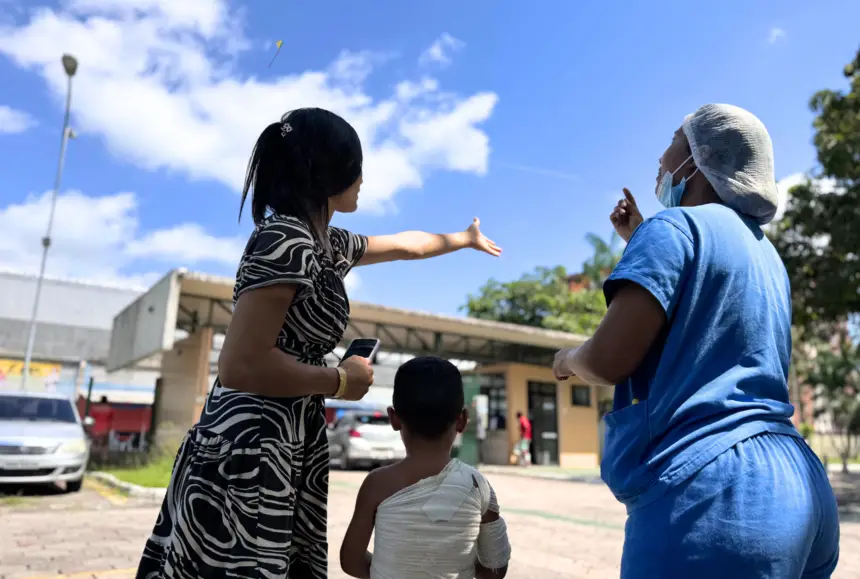
Accompanied by their guardians and a multidisciplinary team, the children experienced moments of pure entertainment, which stimulated motor coordination while running and also controlling the kites, with their hands carefully protected.
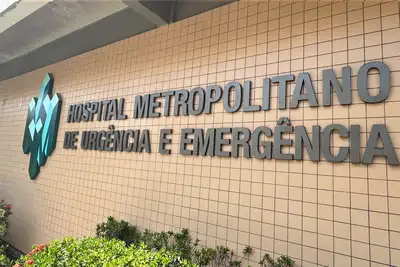
The program is part of the calendar of actions organized by the rehabilitation team, in partnership with the Humanization Committee, combining play and movement. "At this age, the child's main occupation is to play. With hospitalization, this routine activity is interrupted, which can cause delays in development and functional skills. These moments are also important for the child's engagement, who, without realizing it, is being rehabilitated in a playful and humanized way. The more active the patient is, the faster this discharge and de-hospitalization process is," explains occupational therapist Samanta Oliveira.
Resident of Araguaína, State of Tocantins, Roni Souza, 29 years old, has been accompanying his 7-year-old son, who suffered a severe burn at home, for five months. "This emotion that crosses me comes from a place that only those who have almost lost a child know. Today, seeing him running after the kite, with shining eyes and that smile that I thought I would never see again, is an immeasurable happiness. Every laugh of his now is a relief I feel in my soul, a hope that is reborn," said Roni Souza.
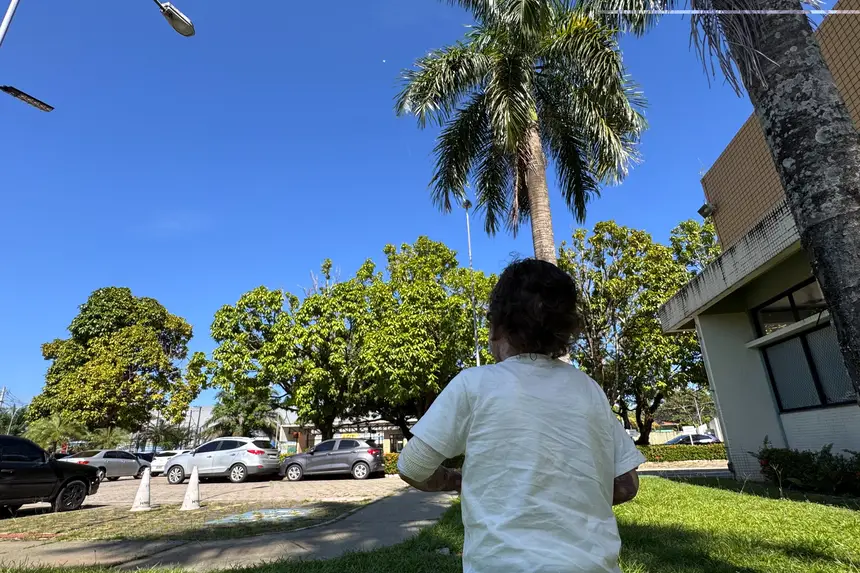
Recreation and treatment - The outdoor program reinforces the humanized approach, which integrates playful activities into the recovery of patients. "The act of playing reduces anxiety, stimulates movement, and strengthens confidence, crucial elements for a good recovery," emphasized Roberta Cardins, president of the Humanization Committee of HMUE.
Managed by the National Institute for Social and Human Development (INDSH), in partnership with the State Department of Public Health (Sespa), HMUE has operational beds in the specialties of traumatology, general surgery, neurosurgery, internal medicine, pediatrics, plastic surgery (exclusive for burn victims), and ICU beds.
In the first half of 2025, more than 360,000 services – including hospitalizations, surgeries, laboratory and imaging exams, multidisciplinary care, and outpatient consultations – were offered to patients from the Metropolitan Region of Belém and other municipalities in Pará.



